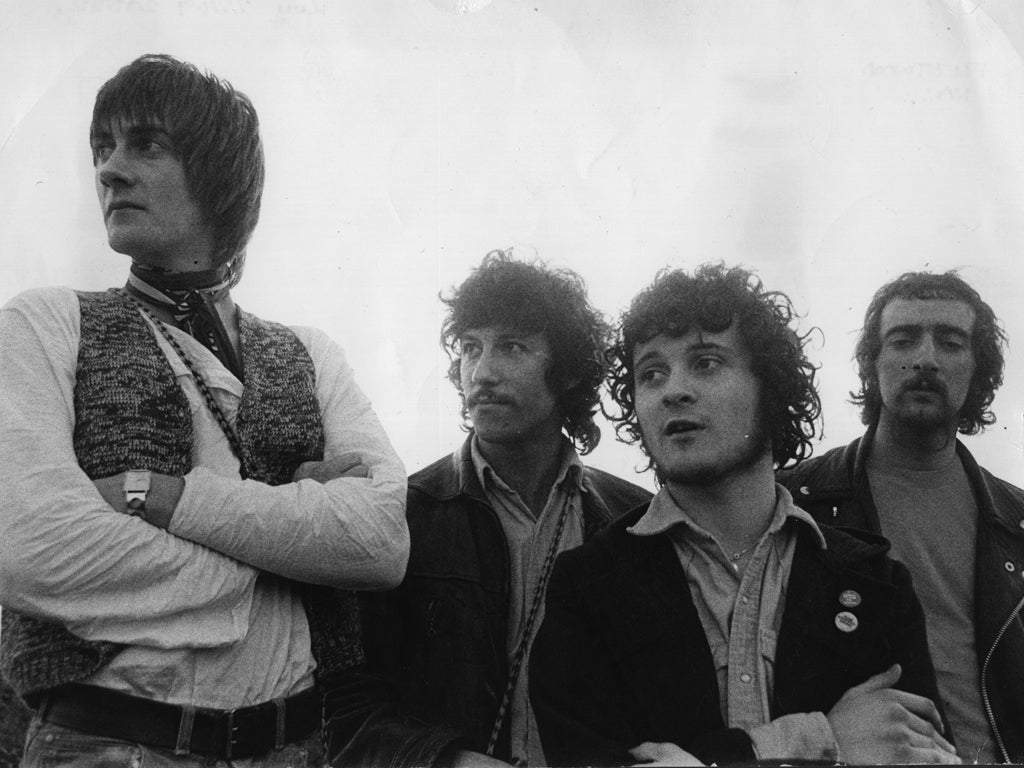Fleetwood Mac for a mere £125: Has the rock ‘n’ roll resurgence become too expensive?
They aren't the first band to ride the wave of nostalgia back into the public spotlight - and expect fans to pay the (extortionate) price

Your support helps us to tell the story
From reproductive rights to climate change to Big Tech, The Independent is on the ground when the story is developing. Whether it's investigating the financials of Elon Musk's pro-Trump PAC or producing our latest documentary, 'The A Word', which shines a light on the American women fighting for reproductive rights, we know how important it is to parse out the facts from the messaging.
At such a critical moment in US history, we need reporters on the ground. Your donation allows us to keep sending journalists to speak to both sides of the story.
The Independent is trusted by Americans across the entire political spectrum. And unlike many other quality news outlets, we choose not to lock Americans out of our reporting and analysis with paywalls. We believe quality journalism should be available to everyone, paid for by those who can afford it.
Your support makes all the difference.When tickets to Fleetwood Mac’s UK tour went on sale Friday morning, elation quickly turned to outrage as fans were faced with tickets costing as much as £125.
“Sorry Fleetwood Mac but your tickets cost more than my rent,” tweeted one bitter fan. Others were similarly unsympathetic. “When do tickets for Fleetwood Mac go on sale? Just so I have time to sell my arse to Satan for the cash,” groaned @Spiral_Scratch. “Why not sell your tickets at a reasonable price?! Or do bands only like their rich fans in attendance these days?” commented @KimSim21.
Despite such protestations, tickets to see the immortal rock veterans sold out in minutes. Of course, Fleetwood Mac is not the first band to ride the wave of nostalgia back into the public spotlight. Led Zeppelin arguably kick-started the current trend with their 2007 O2 arena gig, a one night only reunion that saw lucky £125 ticket-holders picked at random.
At the Rolling Stones’ 50 Anniversary concert last year, Mick Jagger openly joked about the £395 price tag for some seats, stating the band’s £100,000 curfew fine amounted to “like ten seats.” With Roger Waters dusting off his old Pink Floyd opus The Wall for a £79 resurrection in September, and Pete Townshend and Roger Daltrey’s similarly priced ‘Quadrophenia and More’ tour hitting UK arenas in June, it seems the behemoths of Sixties and Seventies pop culture are all clamouring to get one last shot at stardom.
This phenomenon is not just consigned to the arena either: Fleetwood Mac’s announcement that they have three new songs lined-up for their autumn tour is no new feat for an aging rock outfit; Stevie Nicks and co. have joined David Bowie, the Stones (again) and even Prince in releasing new tracks, albeit in the wake of iconic re-releases and re-packaged boxsets. While such marketing strategies in no way detract from the merit of the music, it is hard not to wonder whether waning royalties have anything to do with this newfound enthusiasm.
Of course, a large part of the problem lies not with the musicians but the touts. Ticket touting is legal in the UK, yet with the unchecked rise of the industry online it is increasingly hard to understand why. It is widely believed that touts now use illegal automated ‘bots’ to buy up vast swaths of tickets when they appear online, with the intention of selling them back to the consumer at double or even triple their original value.
On top of mind-boggling booking fees, police estimate the lucrative industry accumulates £1 billion a year in this country alone. In a distasteful act that shows even death has its price, touts are even selling tickets to Dr Feelgood guitarist Wilko Johnson’s farewell tour at an inflated rate. Ticket site Viagogo defended the move, arguing that there has always been an “aftermarket” for tickets.
With both Fleetwood Mac and the Rolling Stones rumoured to headline Glastonbury this year, perhaps the question we should be asking is why bygone bands are once more enjoying their moment in the sun. Sadly, the return of these pop culture juggernauts says far more about the current state of modern music than their desire to shift 40-year-old records. In times of political apathy and economic uncertainty, it is perhaps understandable that sure-fire rock ‘n’ roll hits are such a popular form of escapism. But at such a high price, it is up to ticket buyers to ensure they won’t get fooled again.
Join our commenting forum
Join thought-provoking conversations, follow other Independent readers and see their replies
Comments